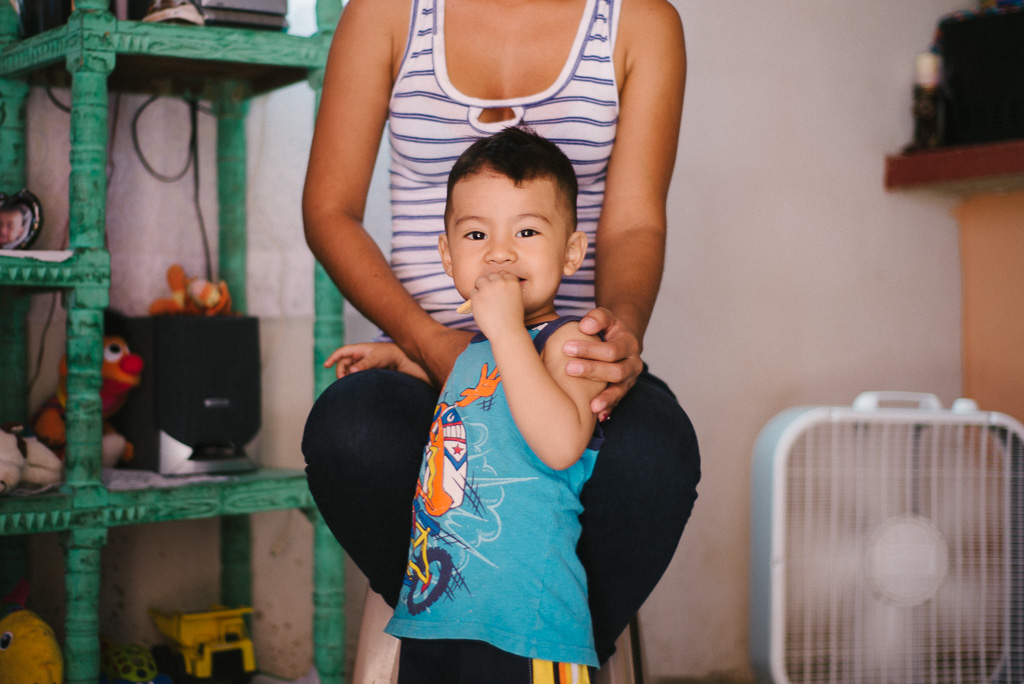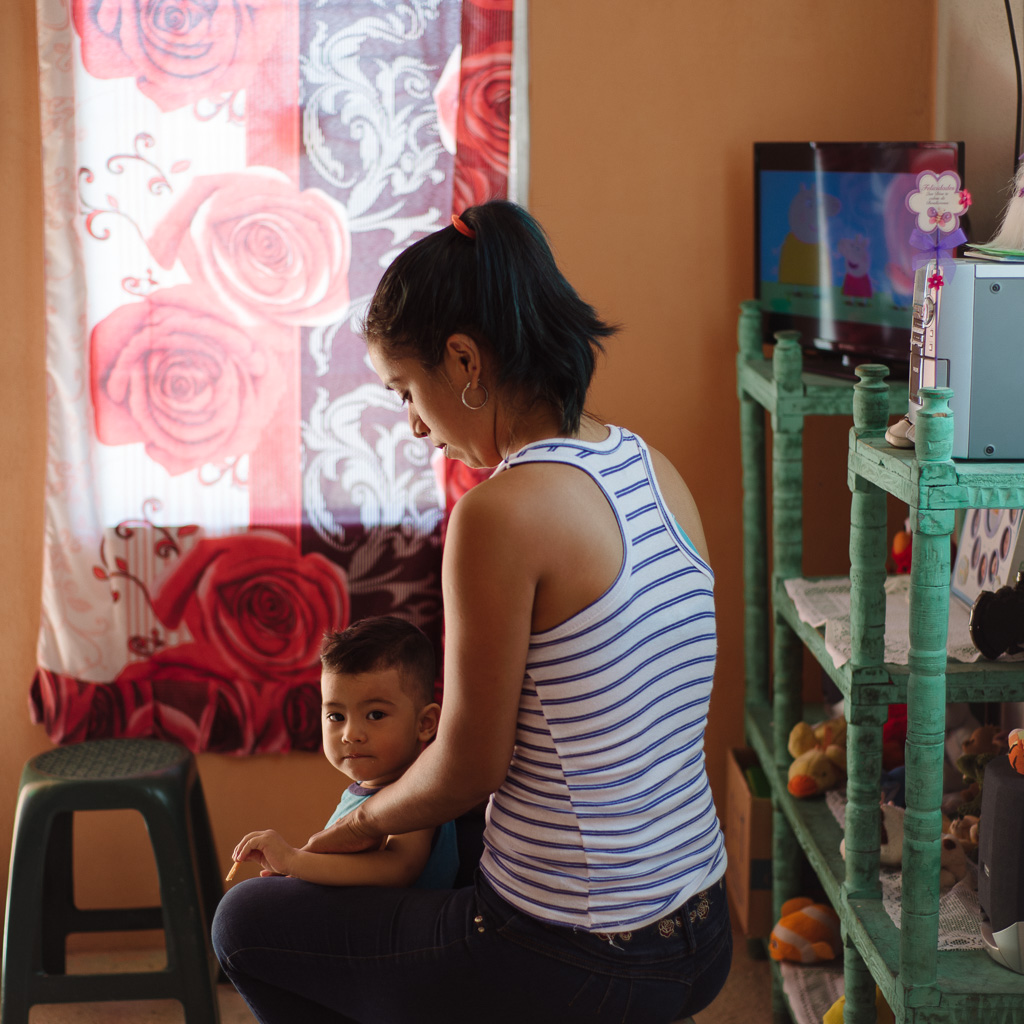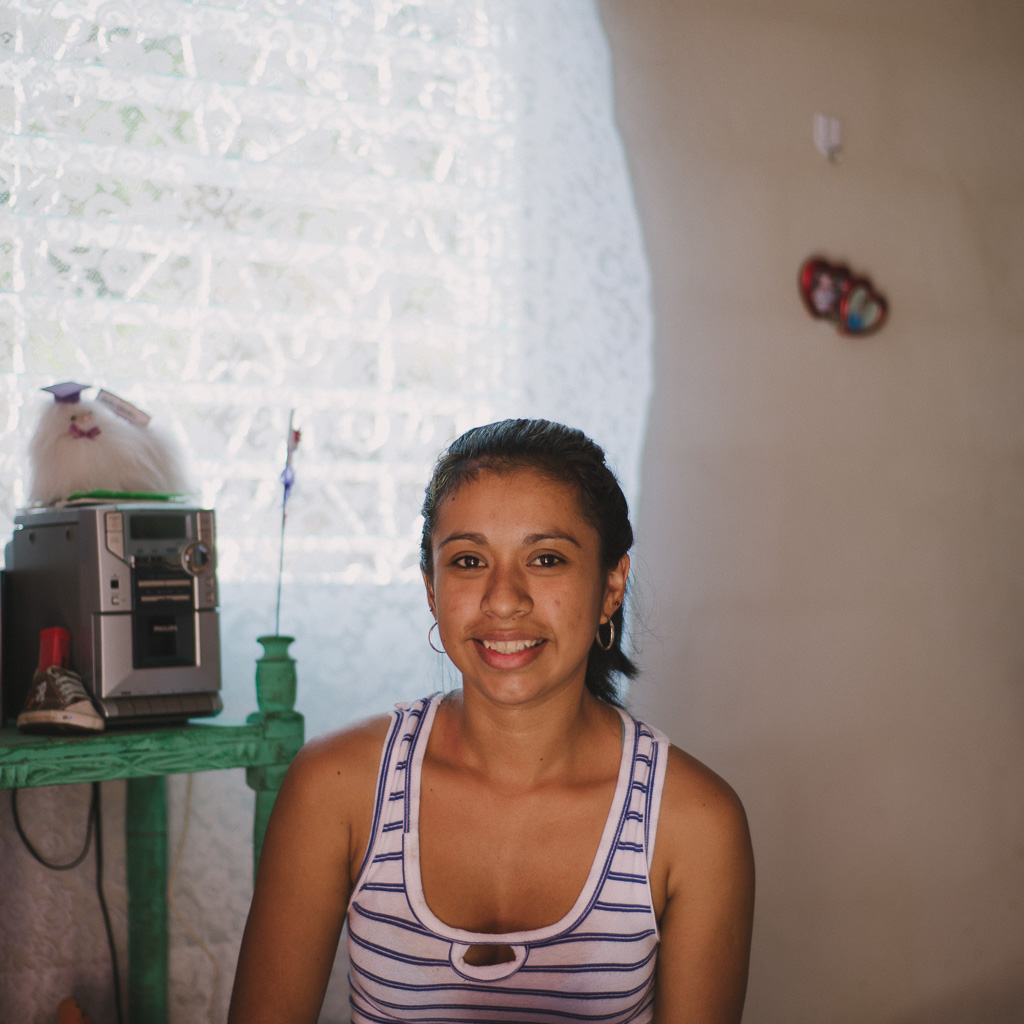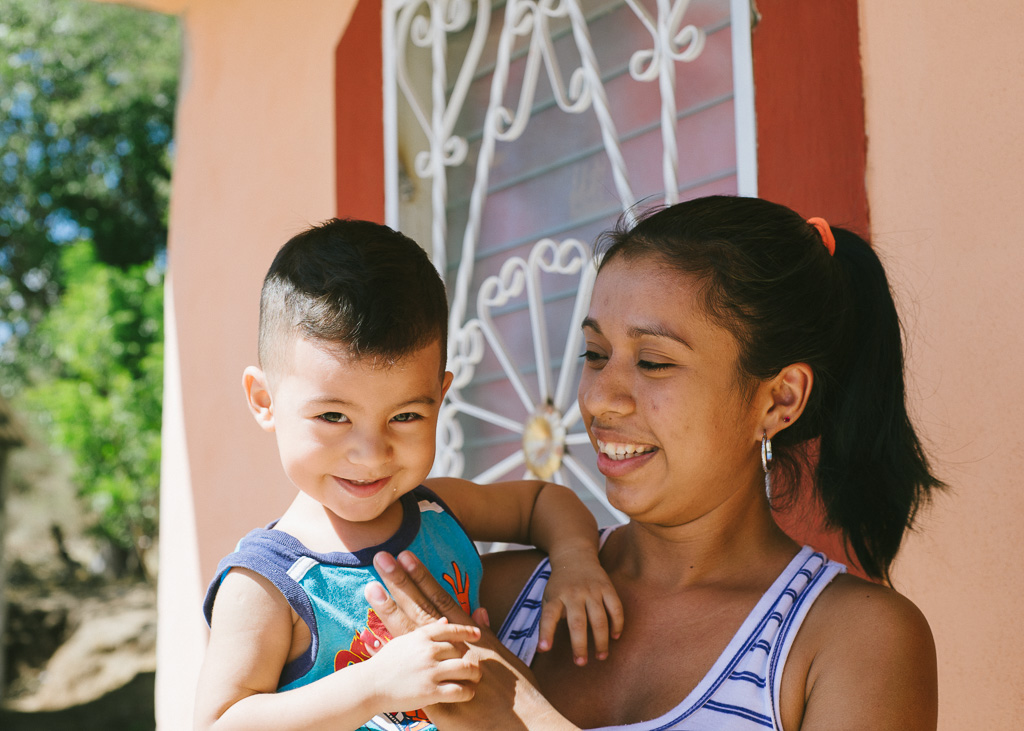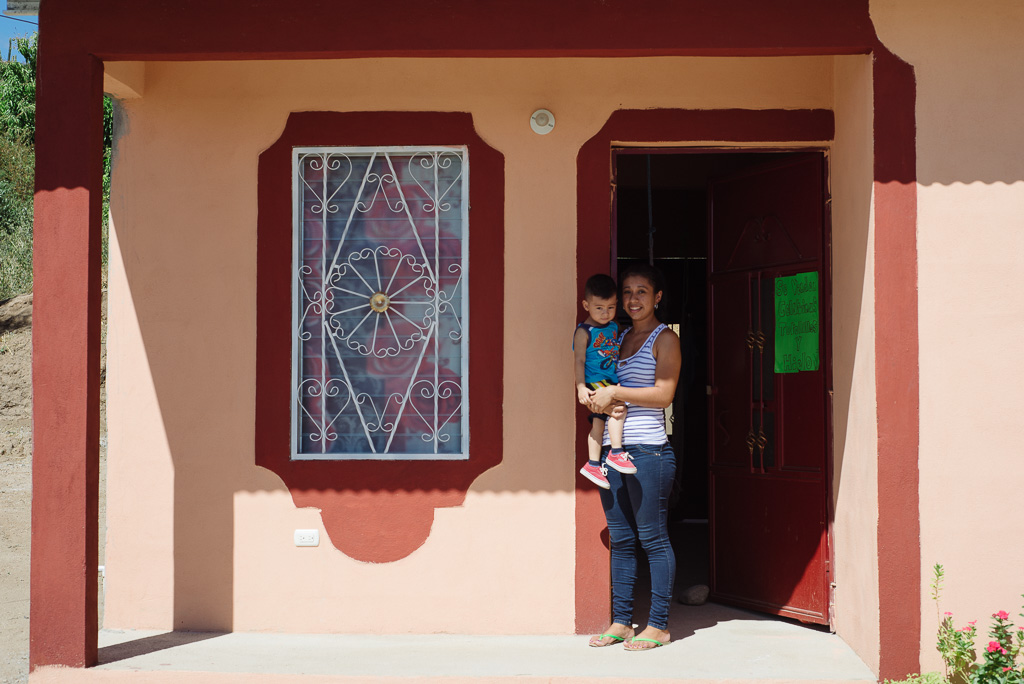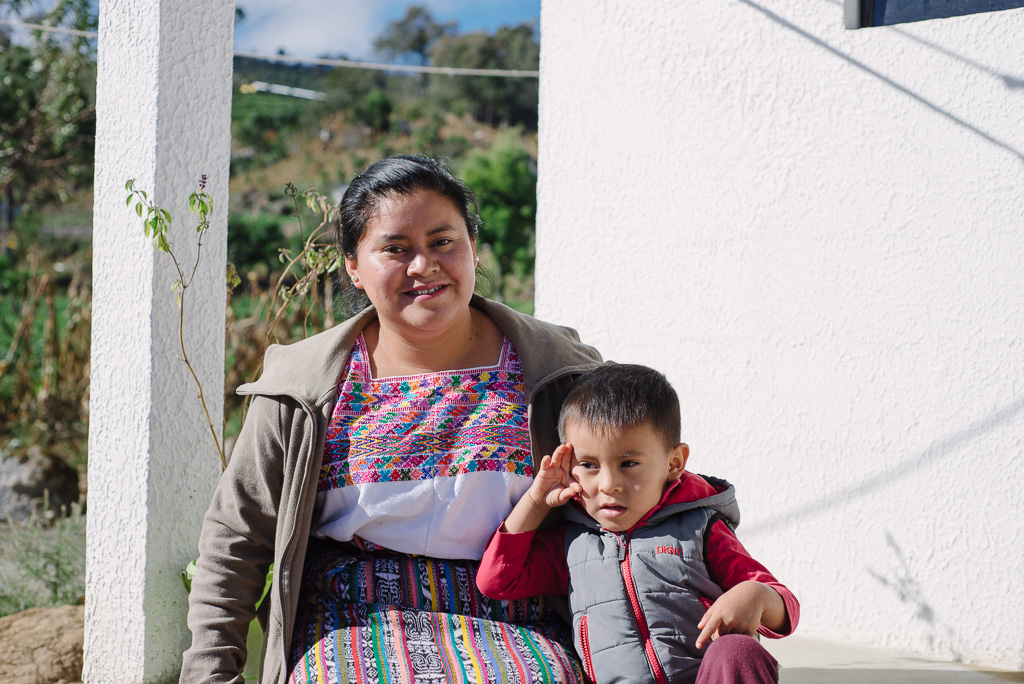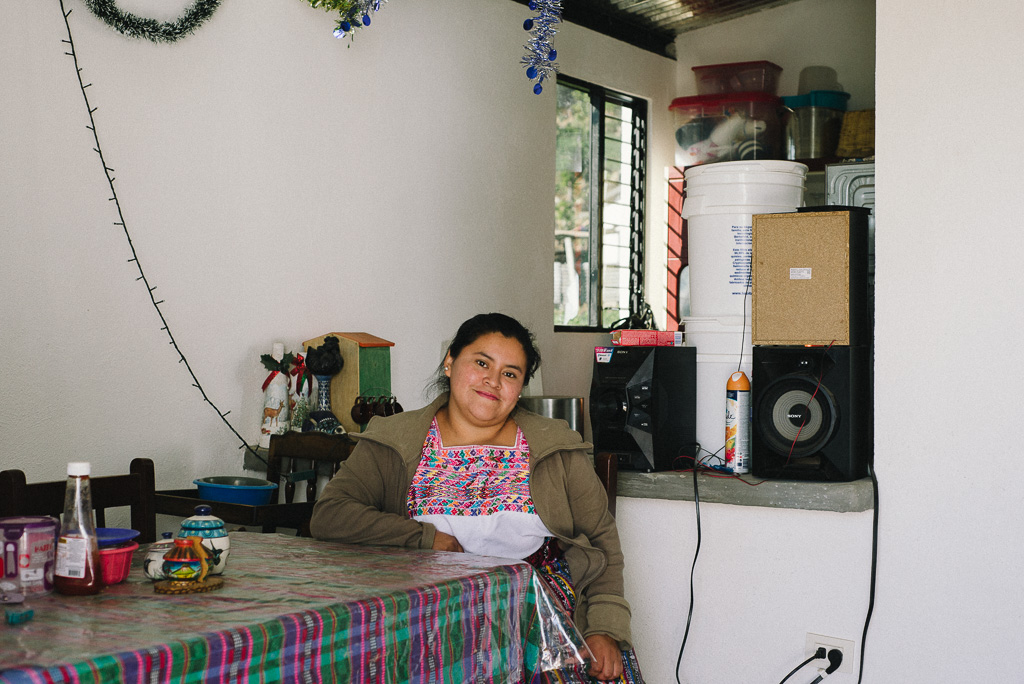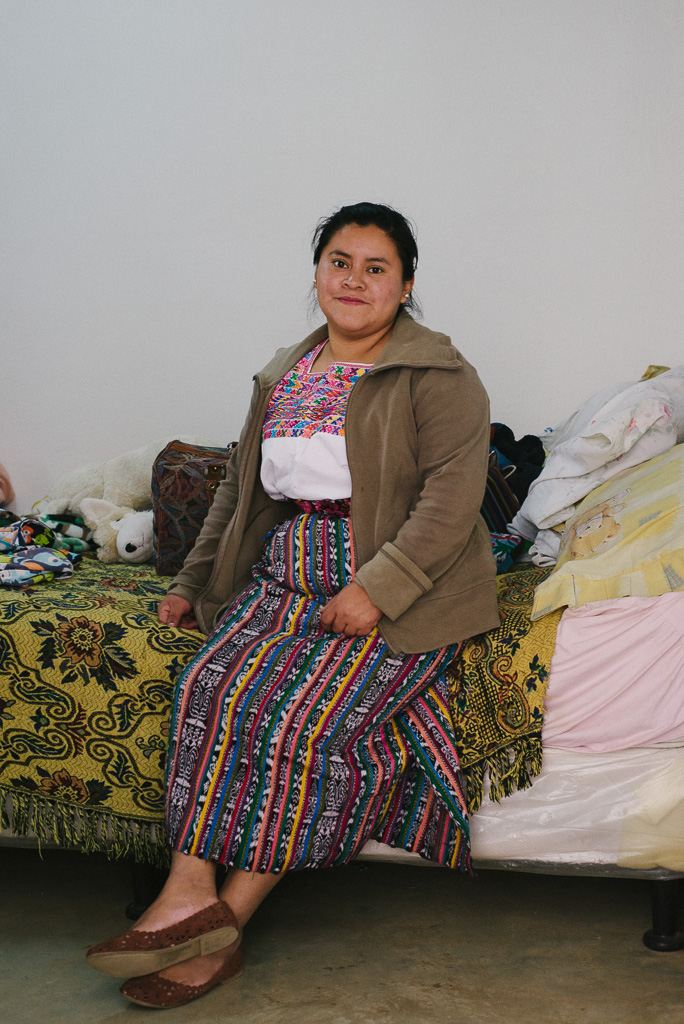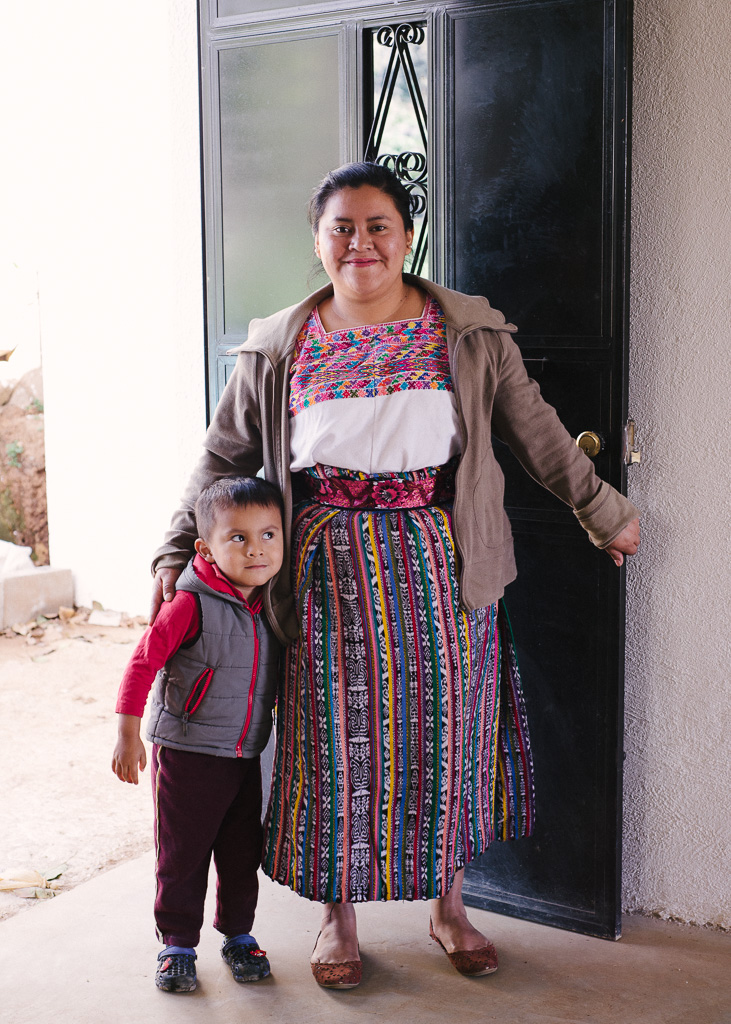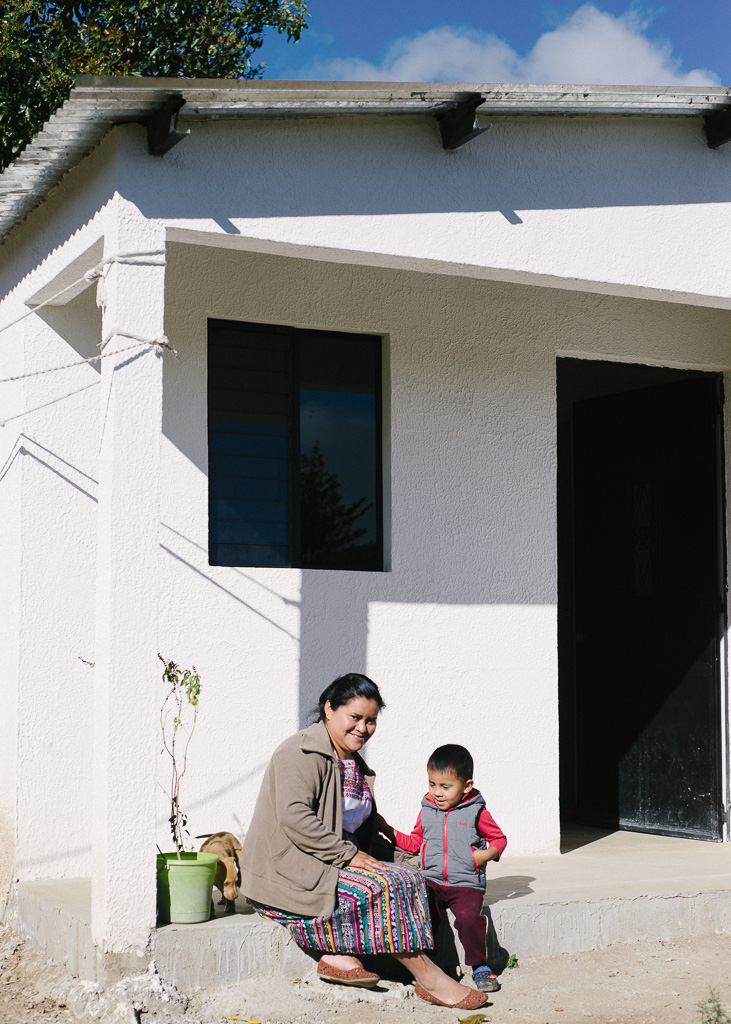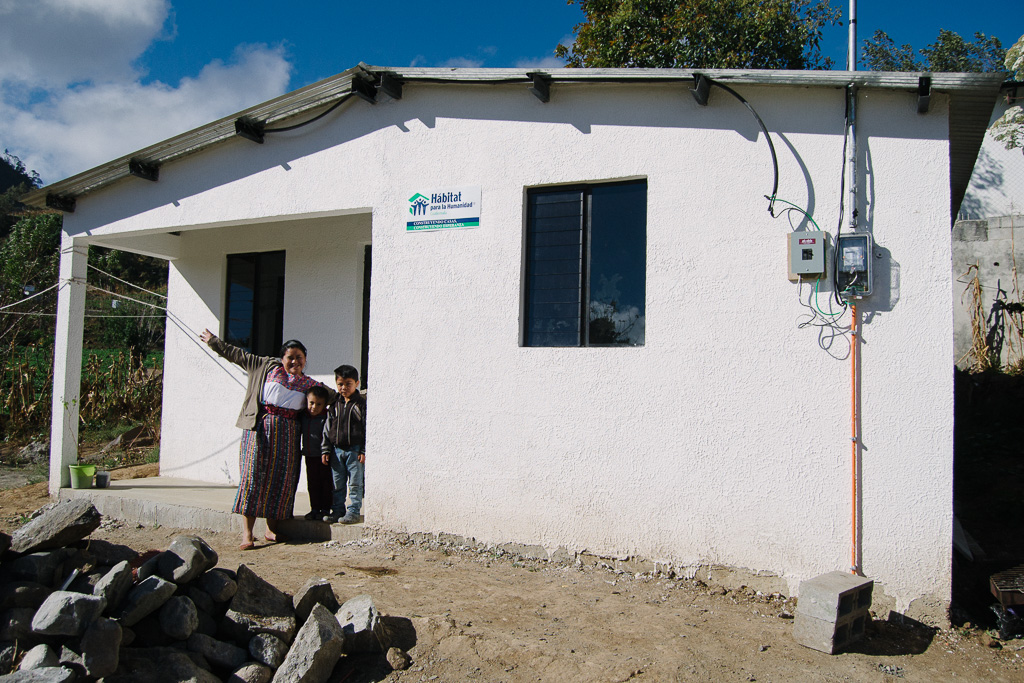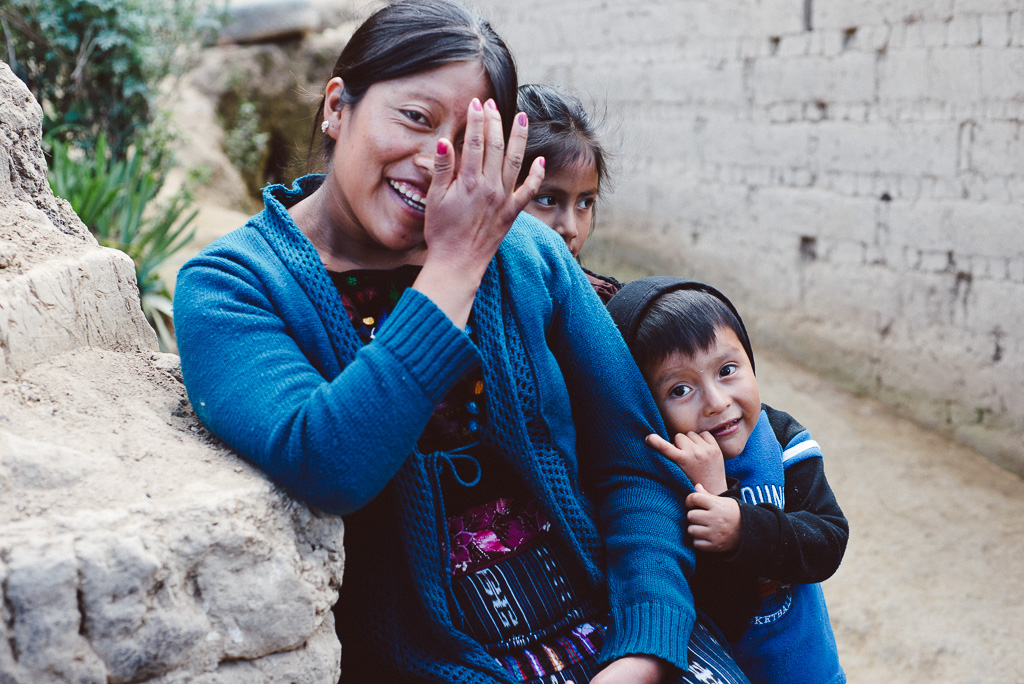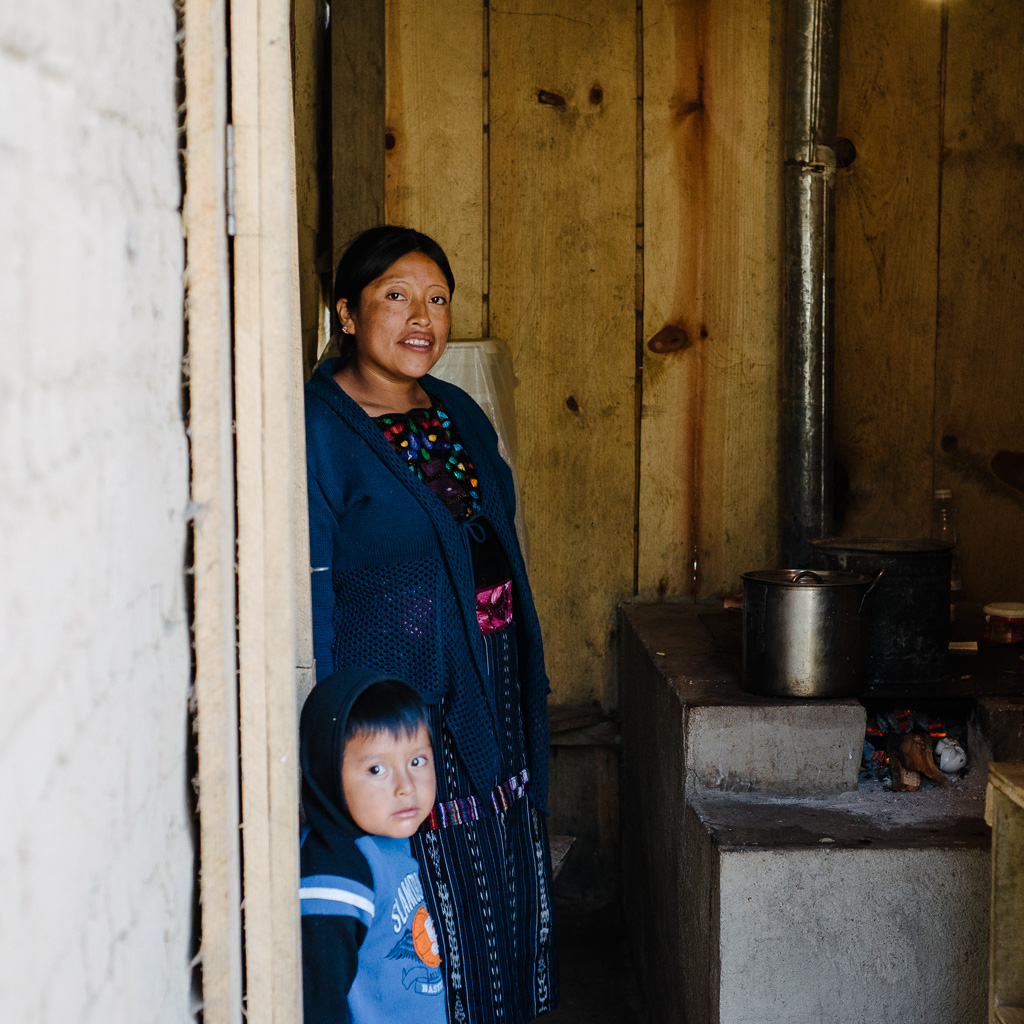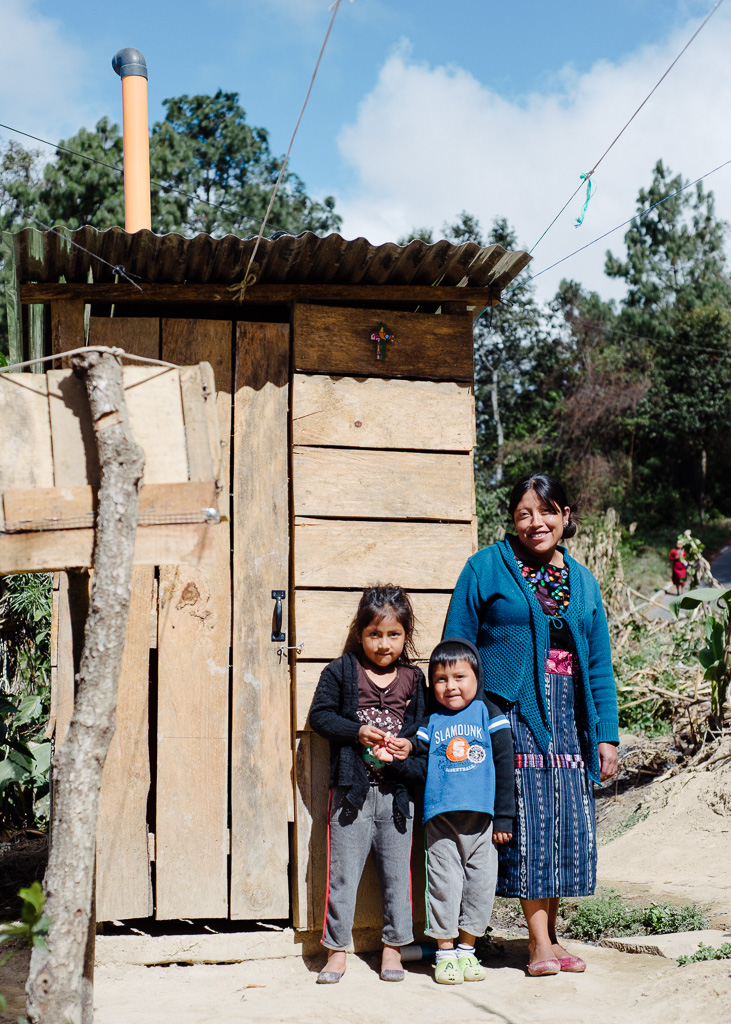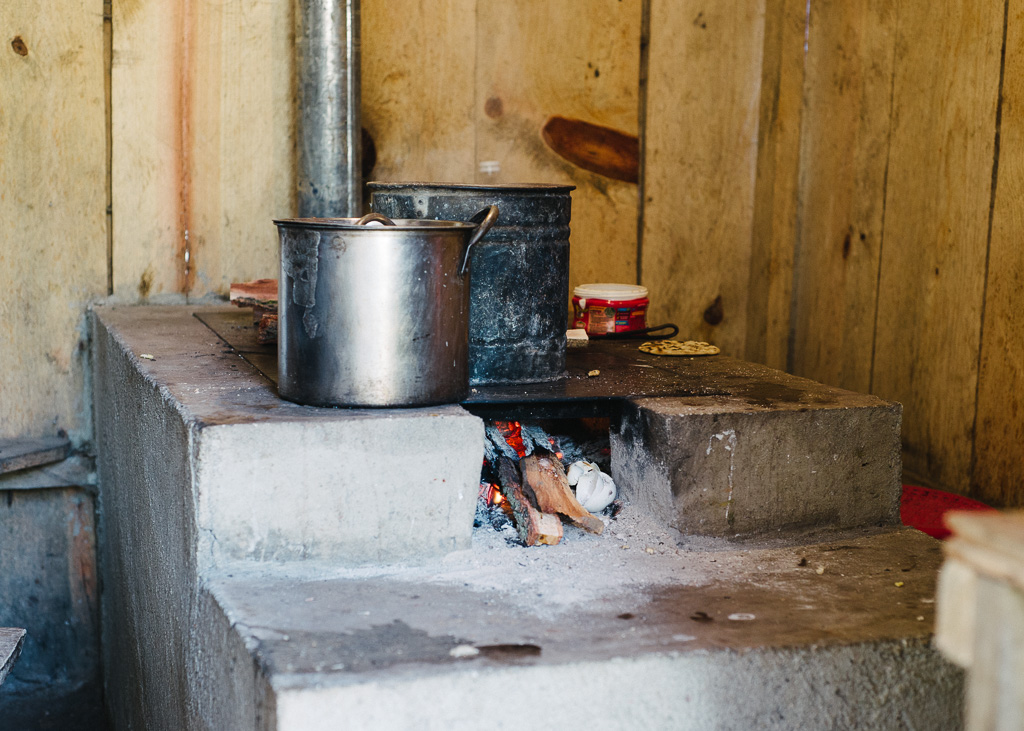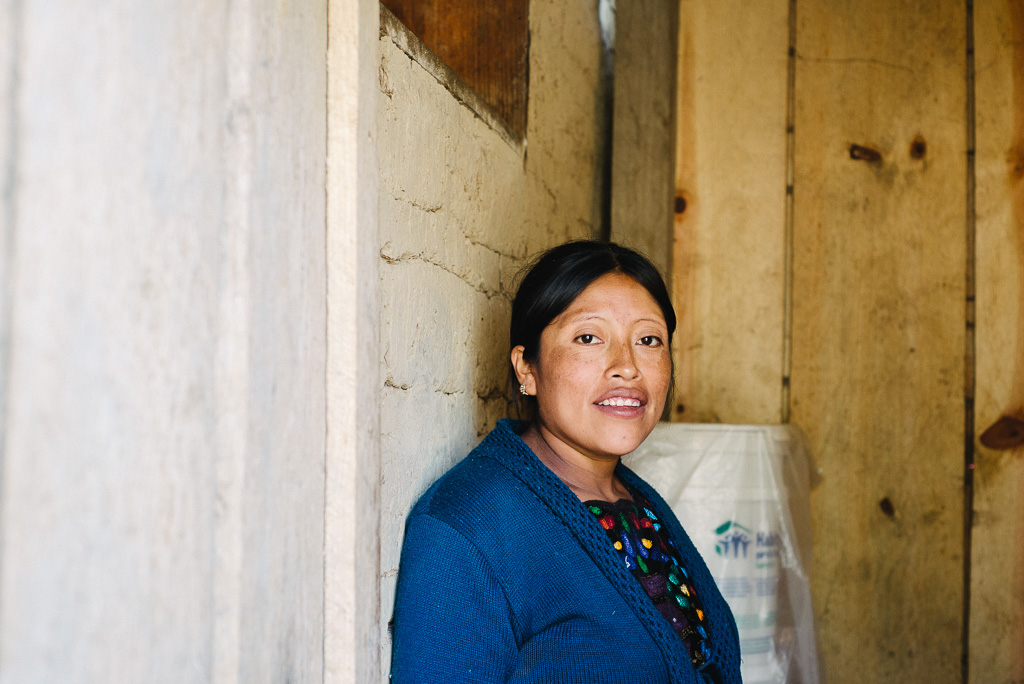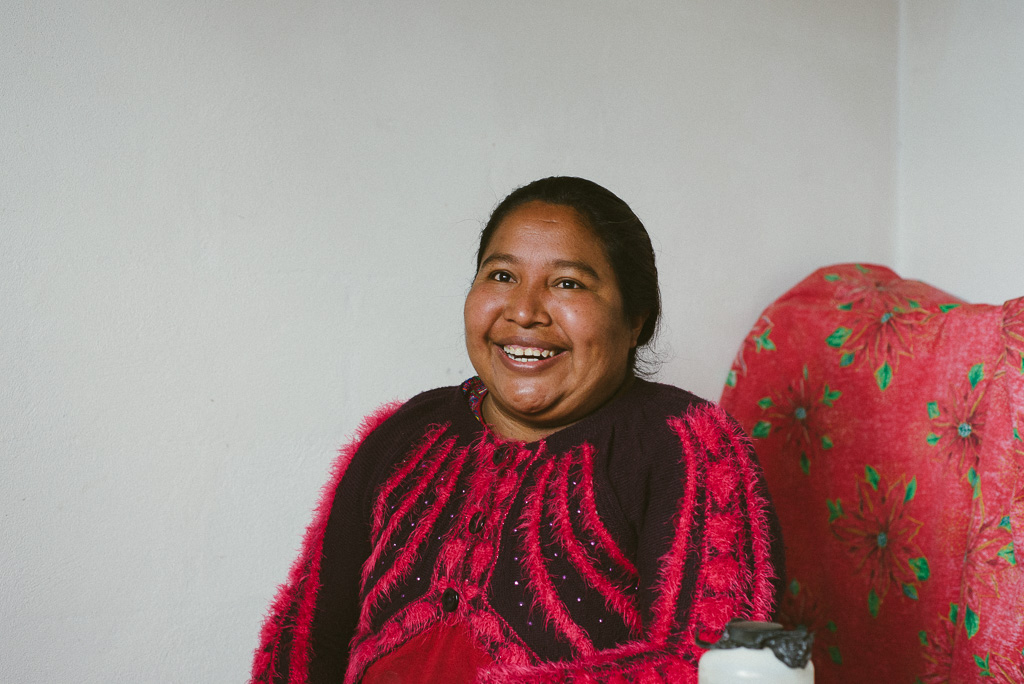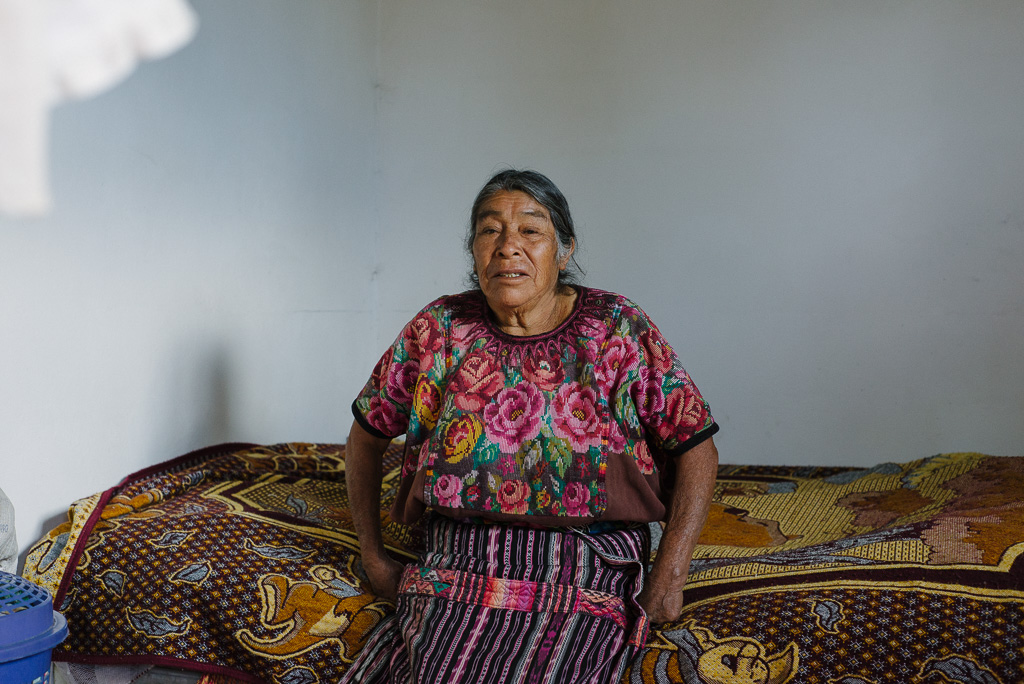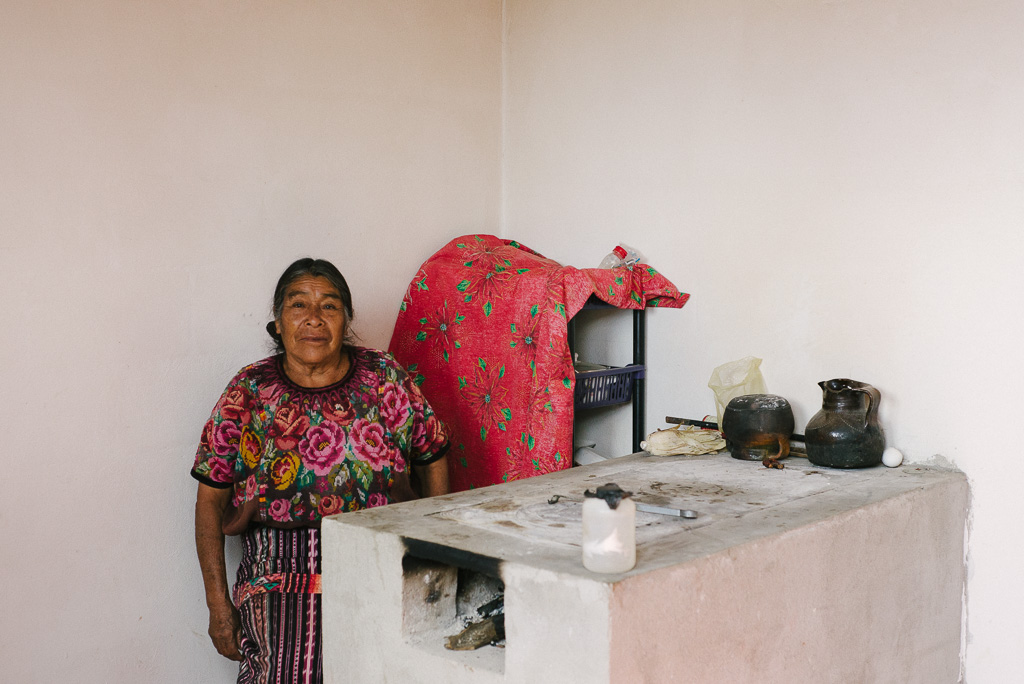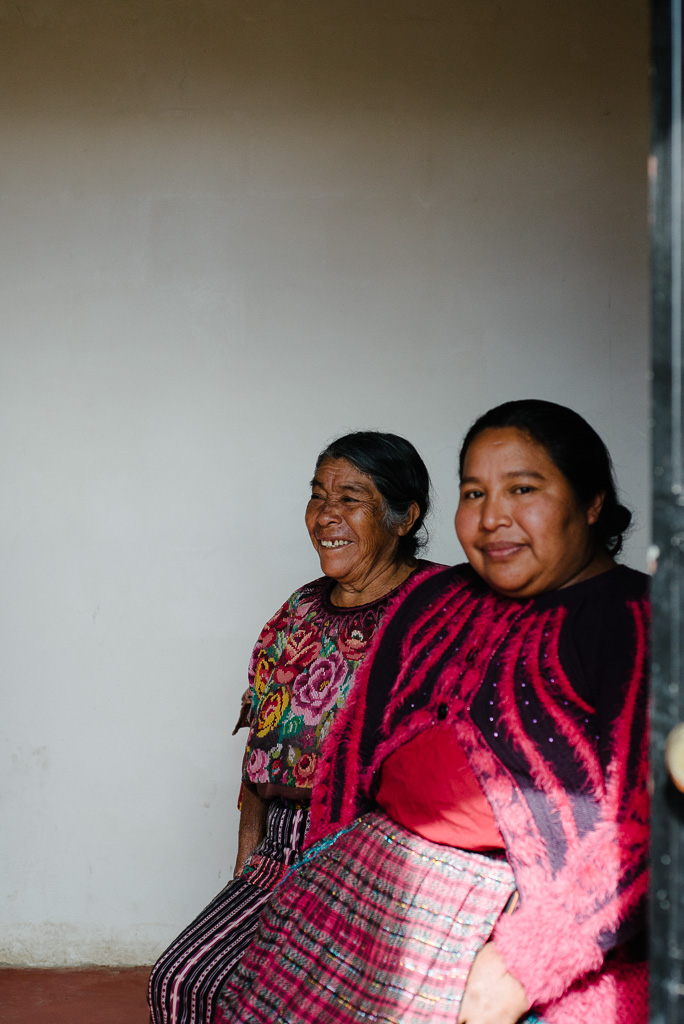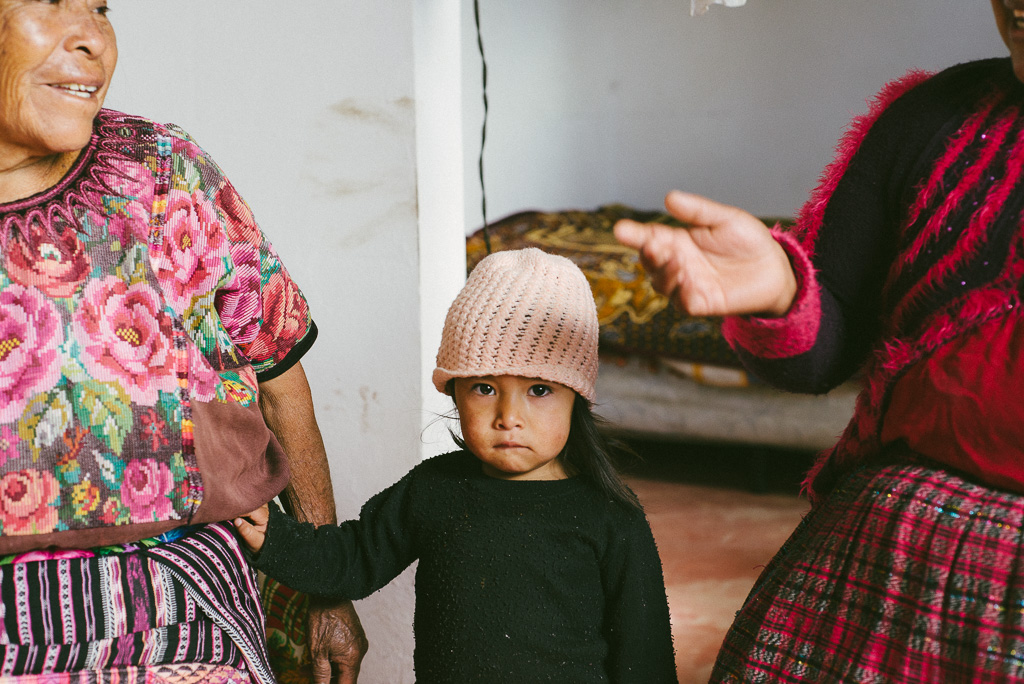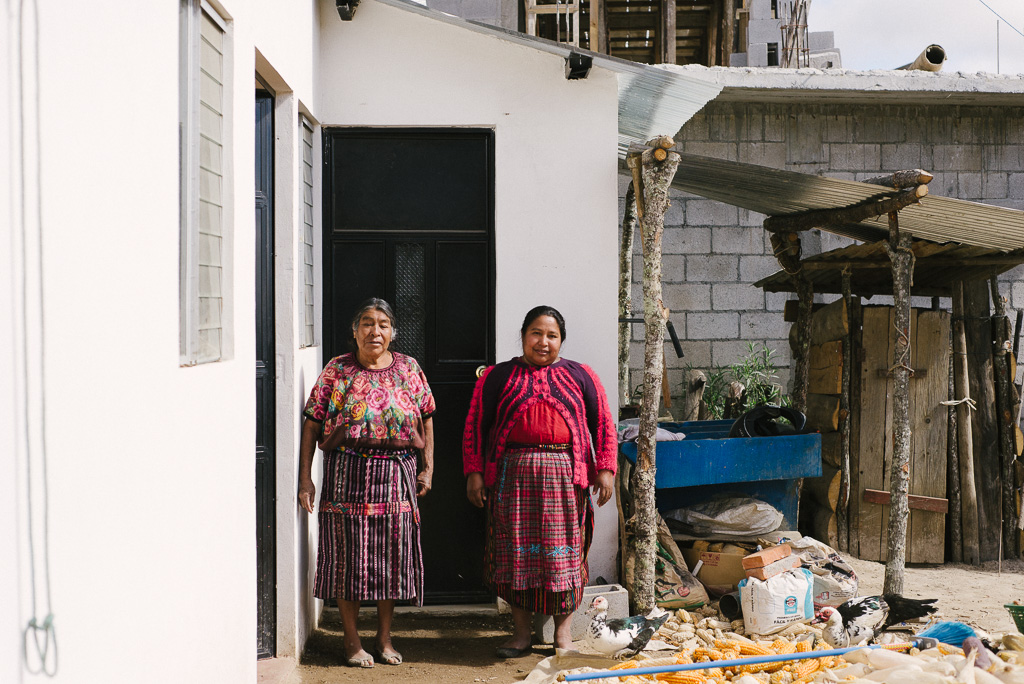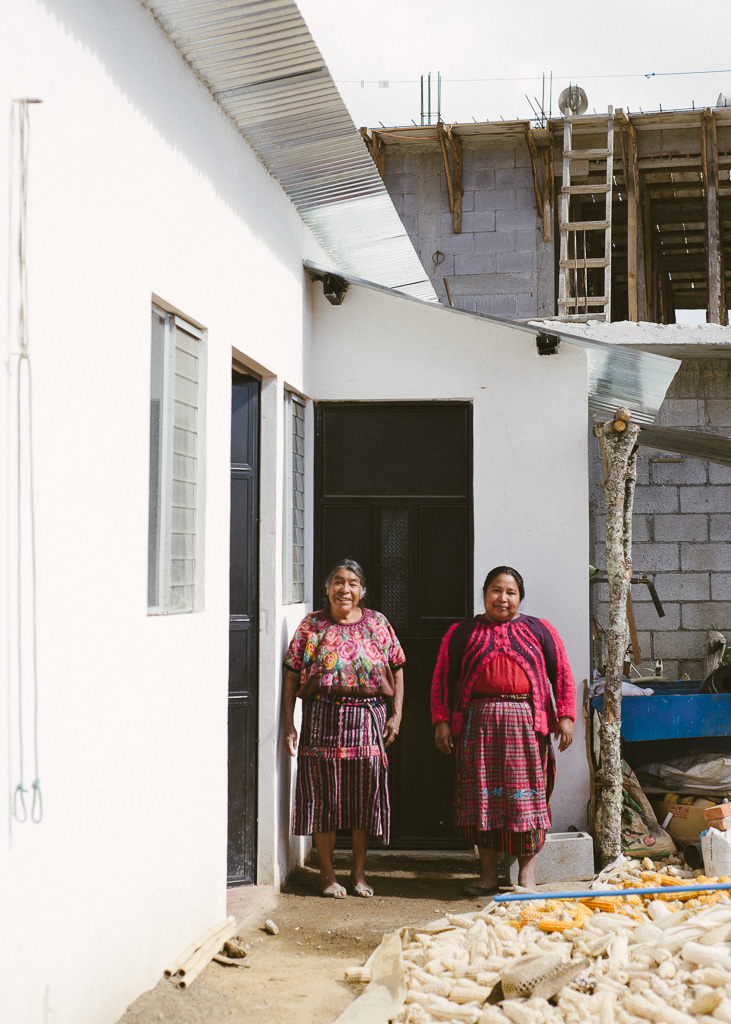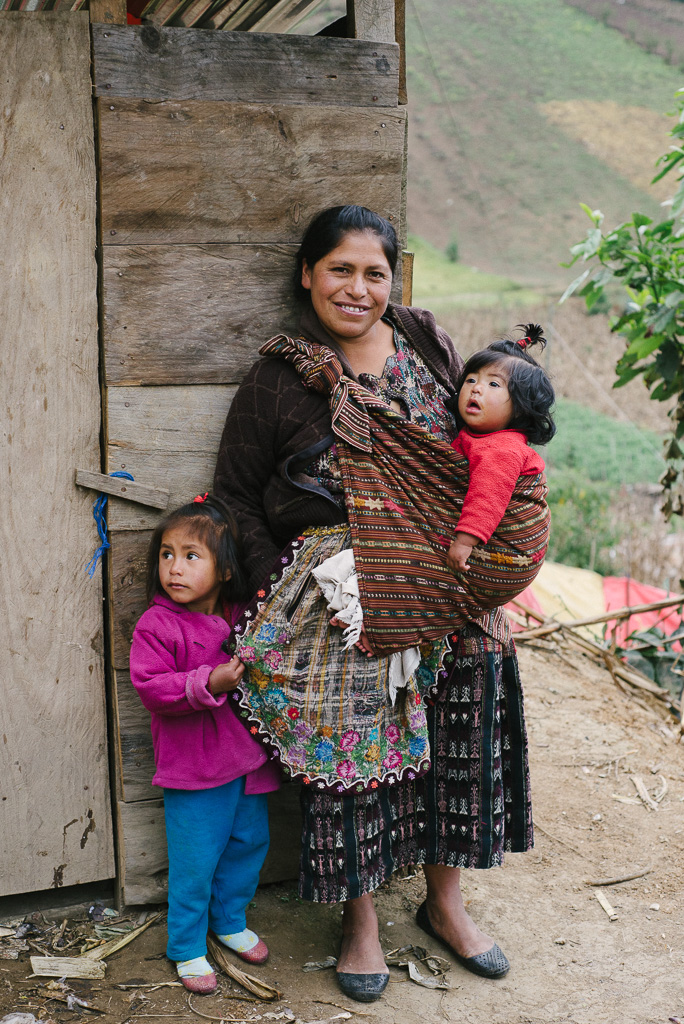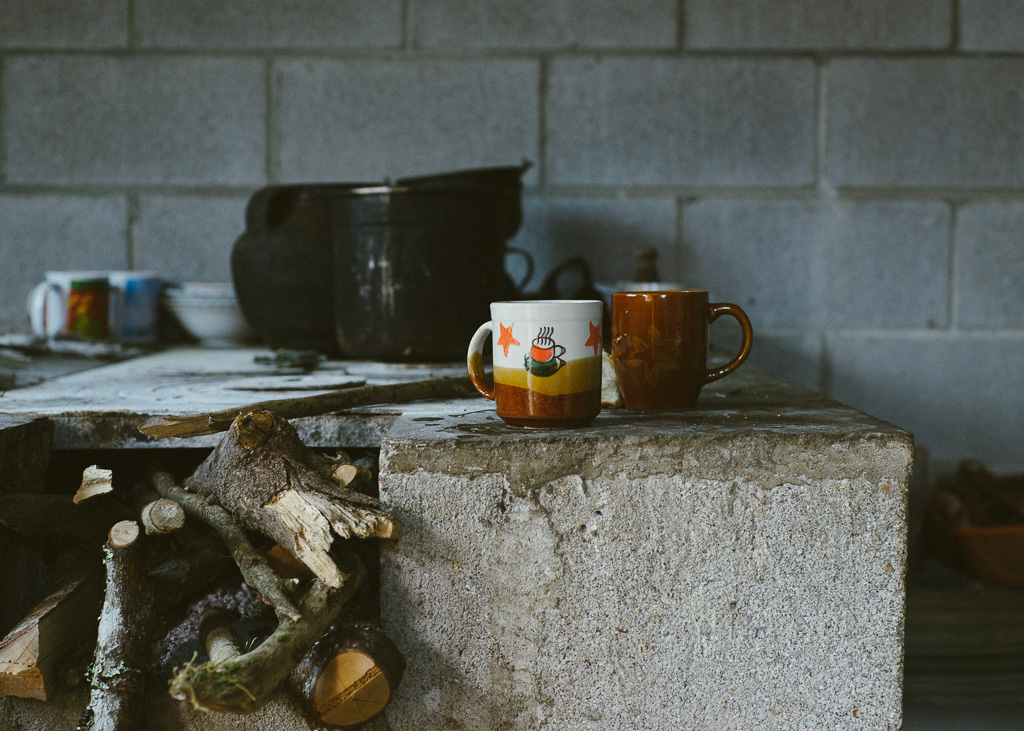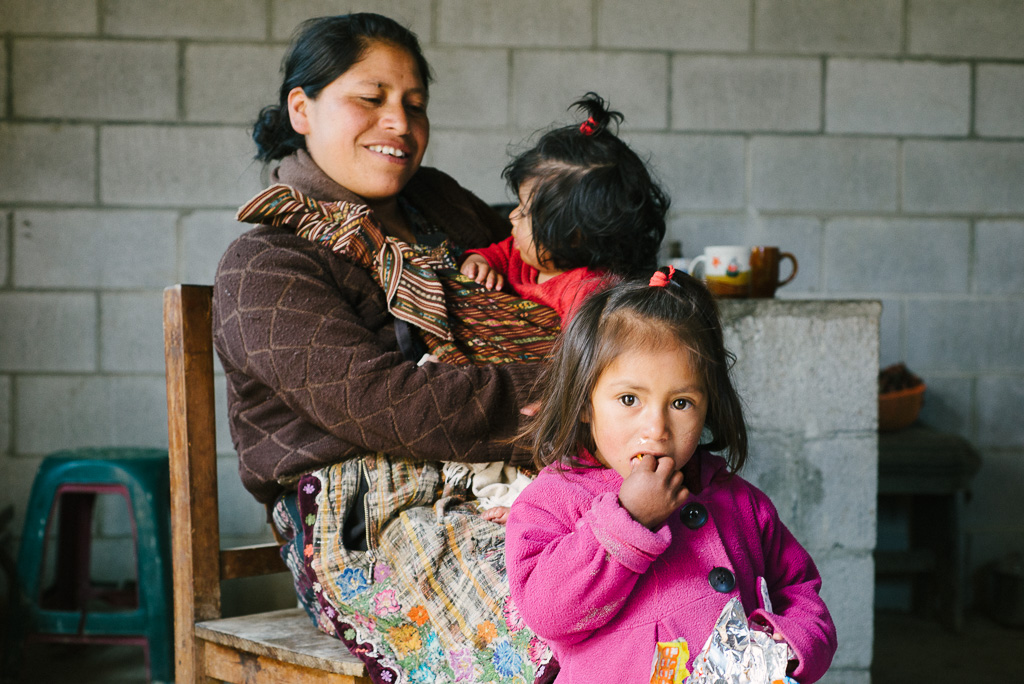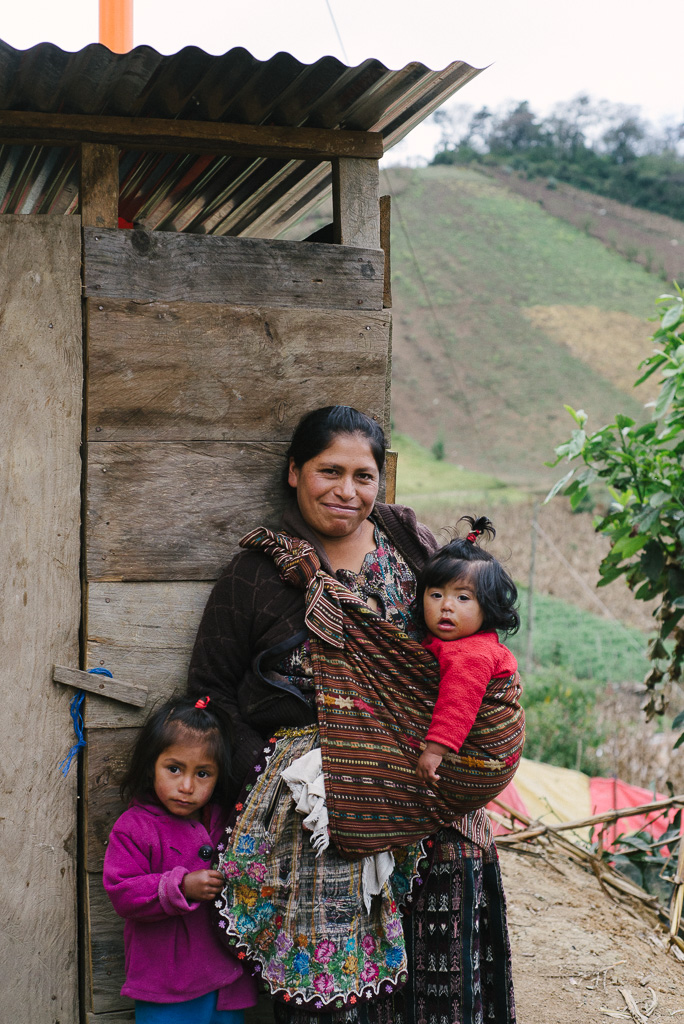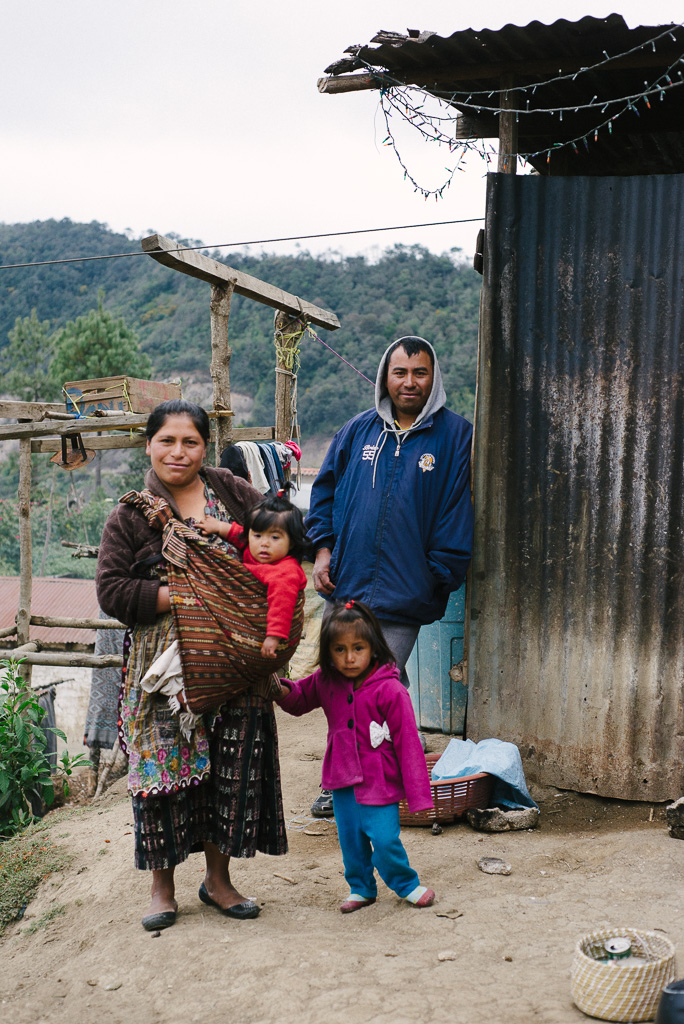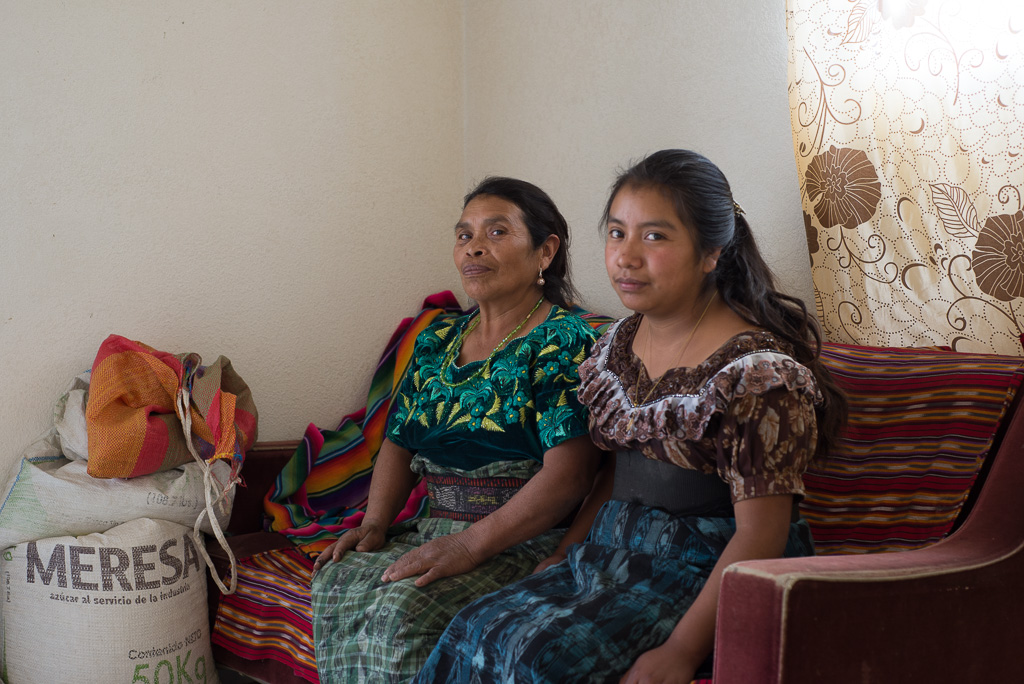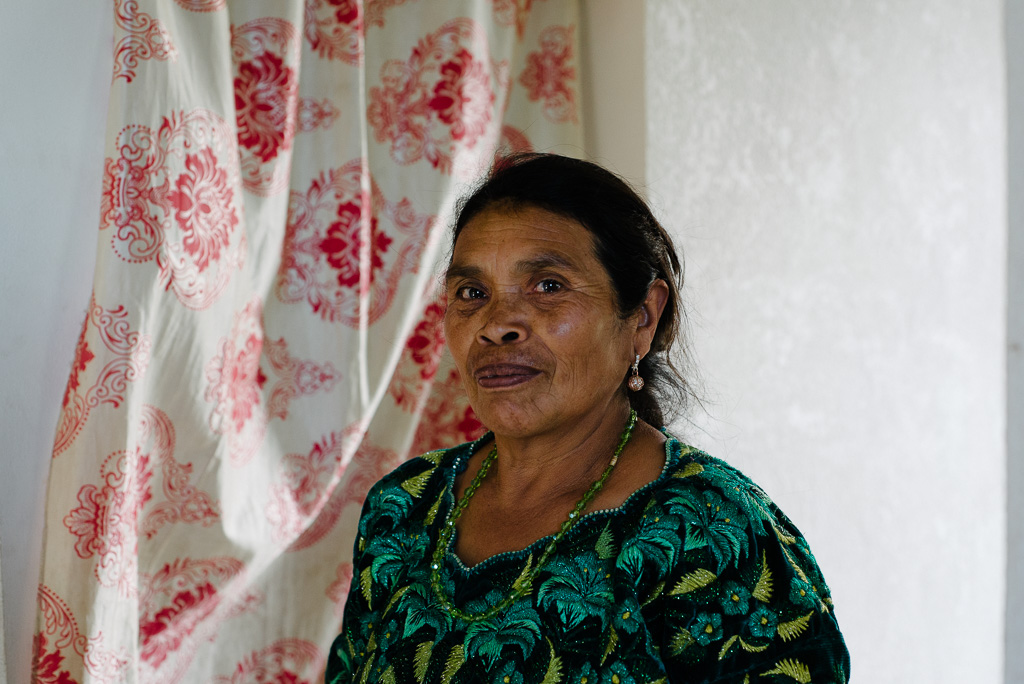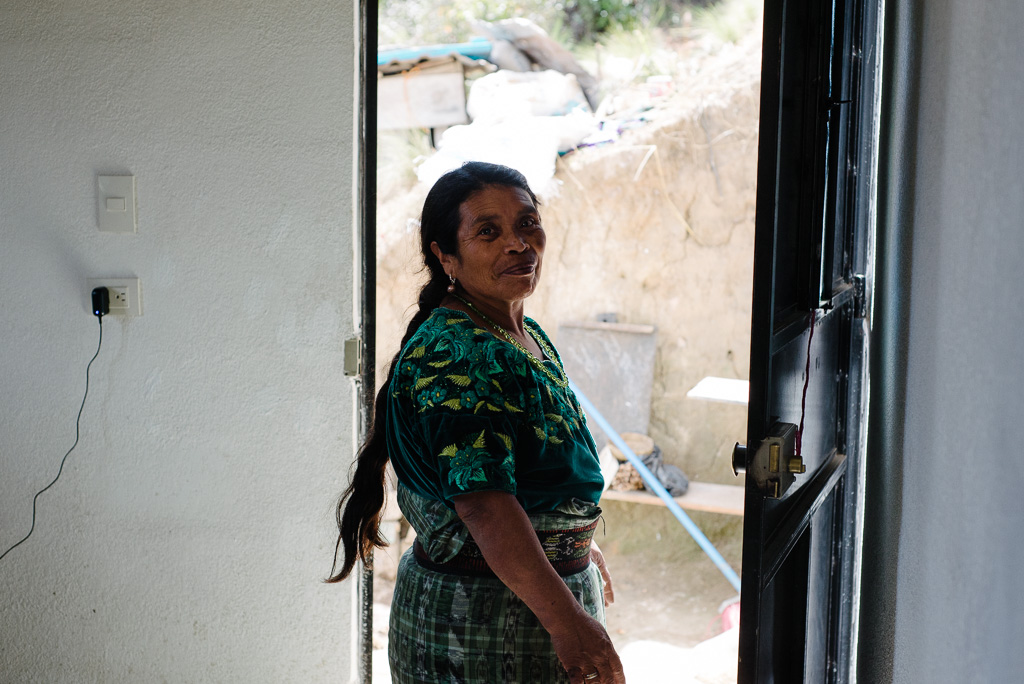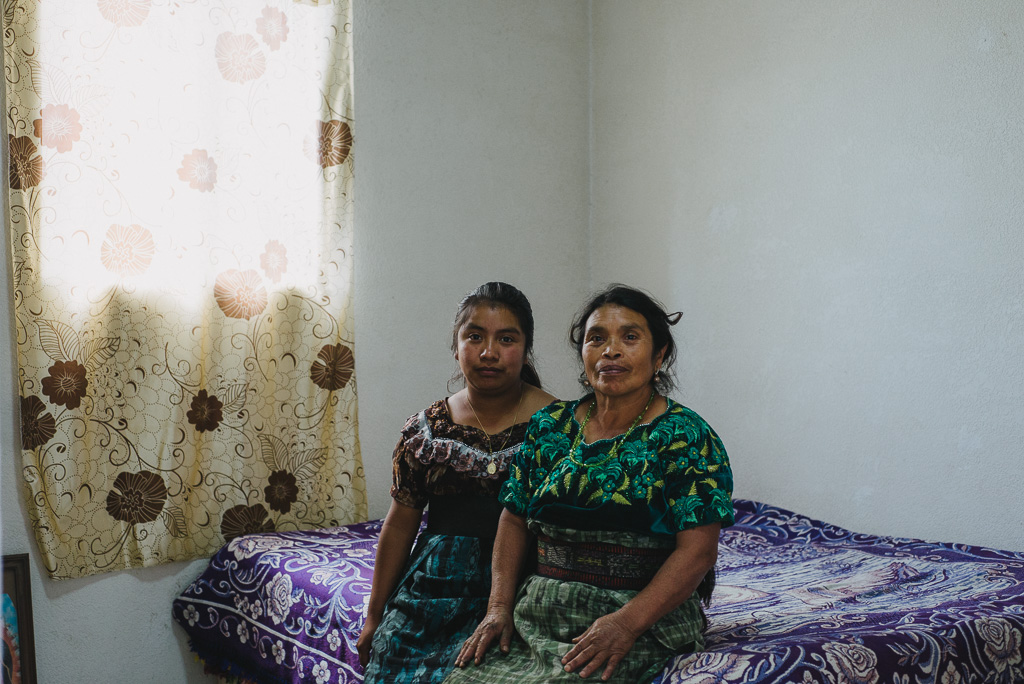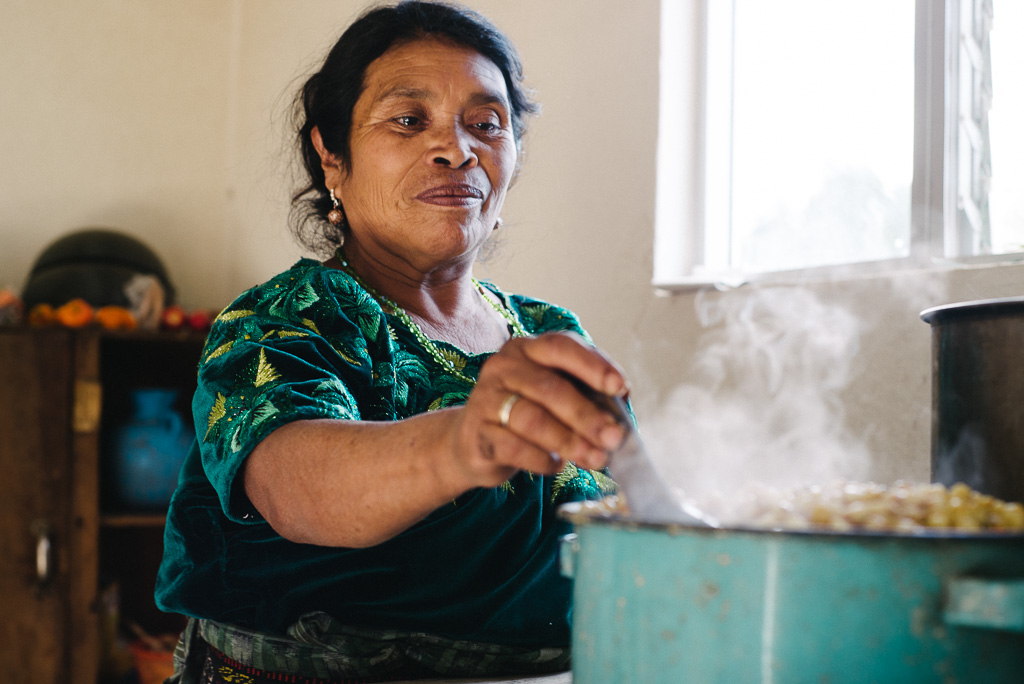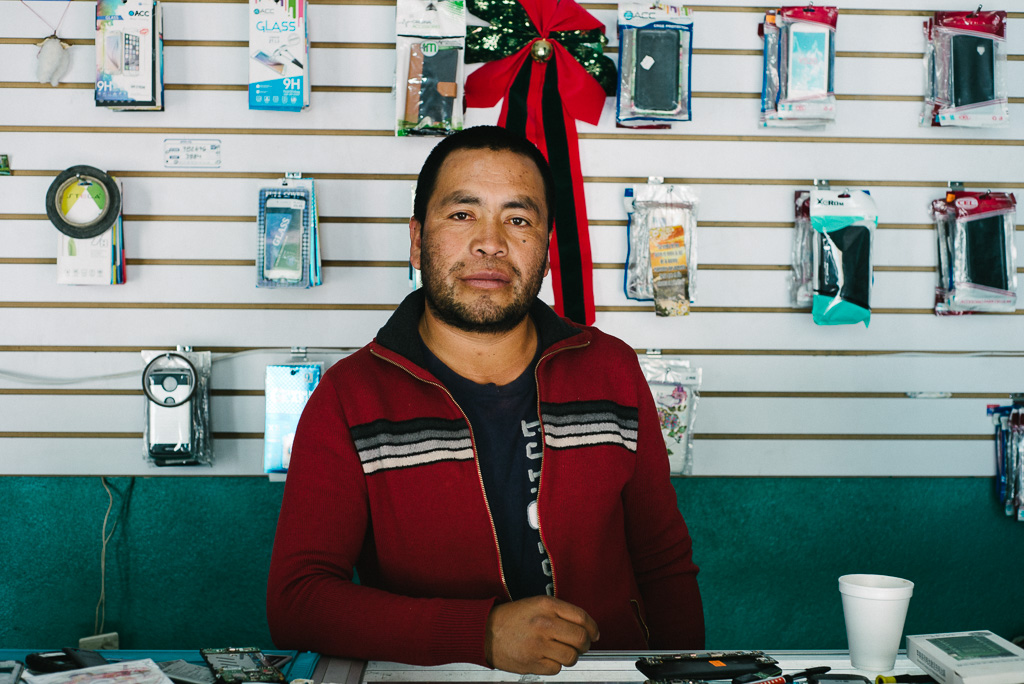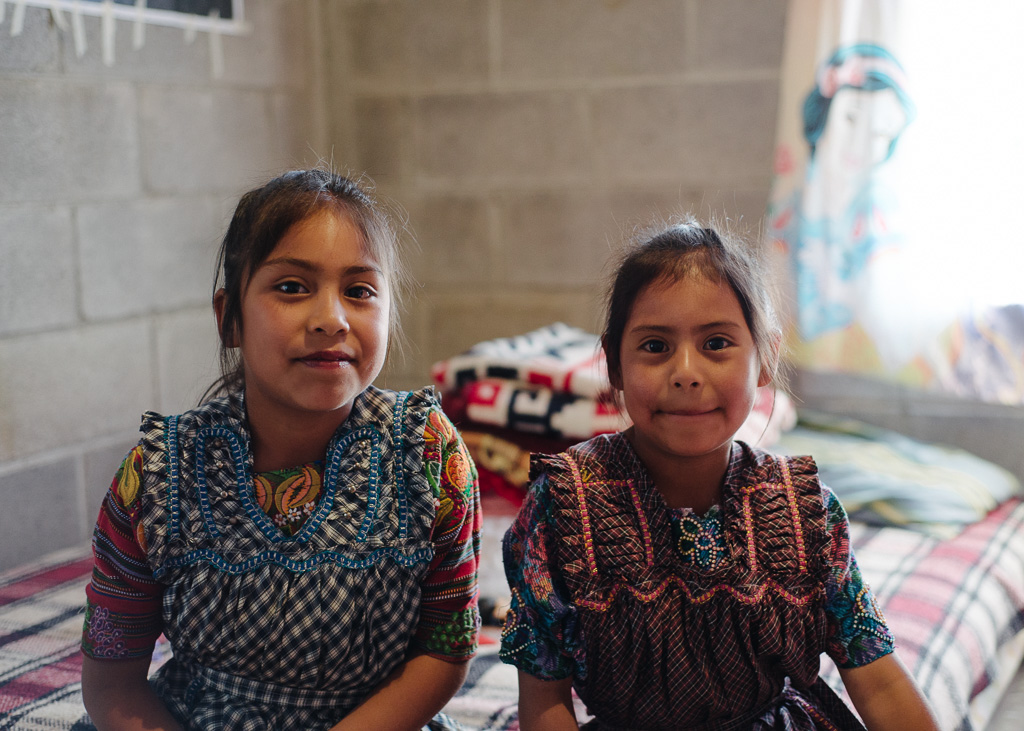
Ingrid and Elma Muxtay are sisters from Chimaltenango. After Ingrid’s husband passed away and Elma’s husband left the family, the two sisters were placed in the position of each raising their two children without a partner. Ingrid has two daughters: Lesli and Lidia. Elma is the mother of two little boys, Luis and Mynor. Because they wanted to make sure their children would have stable homes as they grew up, Ingrid and Elma built homes with the support of Habitat Guatemala.

Francisco and Teresa with their grandchildren in front of their daughter Elma’s Habitat Guatemala home
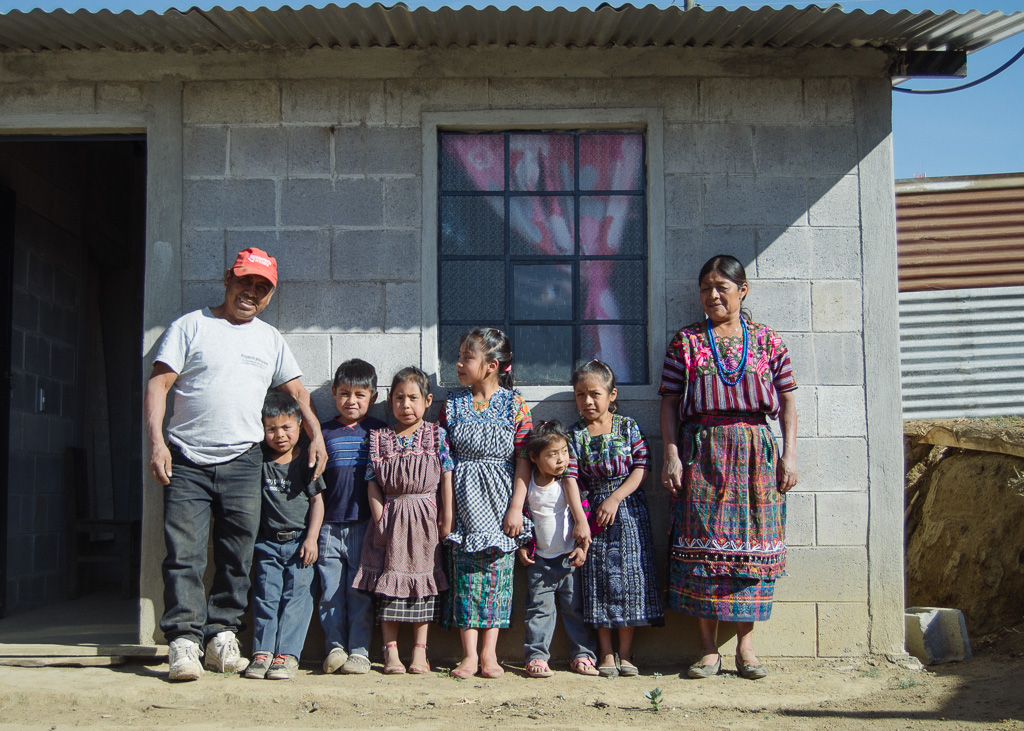
Though they are single mothers, Ingrid and Elma are not completely alone. They have each other, their parents, and Habitat Guatemala. Their parents, Francisco and Teresa, have stepped into the role of caregivers for their grandchildren, allowing Ingrid and Elma to work in Guatemala City. With the money they earn, they are able to make monthly payments on the houses each sister built for her family.

 Francisco explains Ingrid’s story: “After her husband passed away, Ingrid found work in the capital to provide for her family. She wanted to build a home for her daughters so that they would have a home in the future. I gave her the land to build the house on. The girls are little so they stay in our home while their mother works, and when she visits every fifteen days the girls stay with her in their home.”
Francisco explains Ingrid’s story: “After her husband passed away, Ingrid found work in the capital to provide for her family. She wanted to build a home for her daughters so that they would have a home in the future. I gave her the land to build the house on. The girls are little so they stay in our home while their mother works, and when she visits every fifteen days the girls stay with her in their home.”
As she sits in her home, Lesli shares that her favorite room is the bedroom. “I miss my mom, but I love it when she comes home and we stay here together.” Lesli and Lidia are excited today: Lidia is turning seven the tomorrow and her mother is coming home a day early to celebrate the big day.
 The sister’s houses are a only short walk apart. Standing outside Elma’s house, Francisco and Teresa explains her situation: “The never comes to see them anymore,” he says. “And neither do their grandparents.” Teresa chimes in: “There is nothing we can do about that: it is the way it is,» she says. Francisco continues: “So Elma found work with her sister and also comes home every fifteen days to see Luis and Mynor.”
The sister’s houses are a only short walk apart. Standing outside Elma’s house, Francisco and Teresa explains her situation: “The never comes to see them anymore,” he says. “And neither do their grandparents.” Teresa chimes in: “There is nothing we can do about that: it is the way it is,» she says. Francisco continues: “So Elma found work with her sister and also comes home every fifteen days to see Luis and Mynor.”
 The love and care that Francisco and Teresa have for their grandchildren is evident. As they talk, they occasionally pause to talk to their children in Kaqchikel–while Lesli and Lidia are in school and have started to learn Spanish, the younger children do not speak Spanish yet. This is common in Chimaltenango; while more and more indigenous people are learning Spanish, the older generation values their culture and strives to pass their mother tongue down the younger generations.
The love and care that Francisco and Teresa have for their grandchildren is evident. As they talk, they occasionally pause to talk to their children in Kaqchikel–while Lesli and Lidia are in school and have started to learn Spanish, the younger children do not speak Spanish yet. This is common in Chimaltenango; while more and more indigenous people are learning Spanish, the older generation values their culture and strives to pass their mother tongue down the younger generations.
As the family leaves Elma’s home, her sons pause to make sure both the windows and doors are locked. While right now they only stay in it every two weeks, it is their home and they already love and value it.
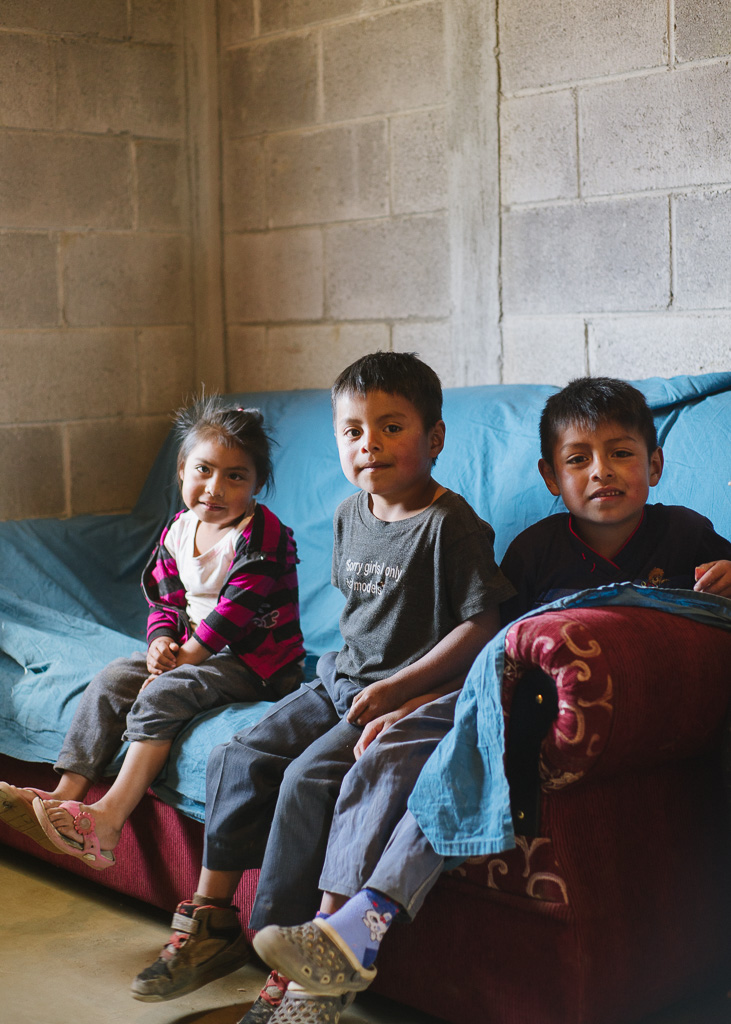
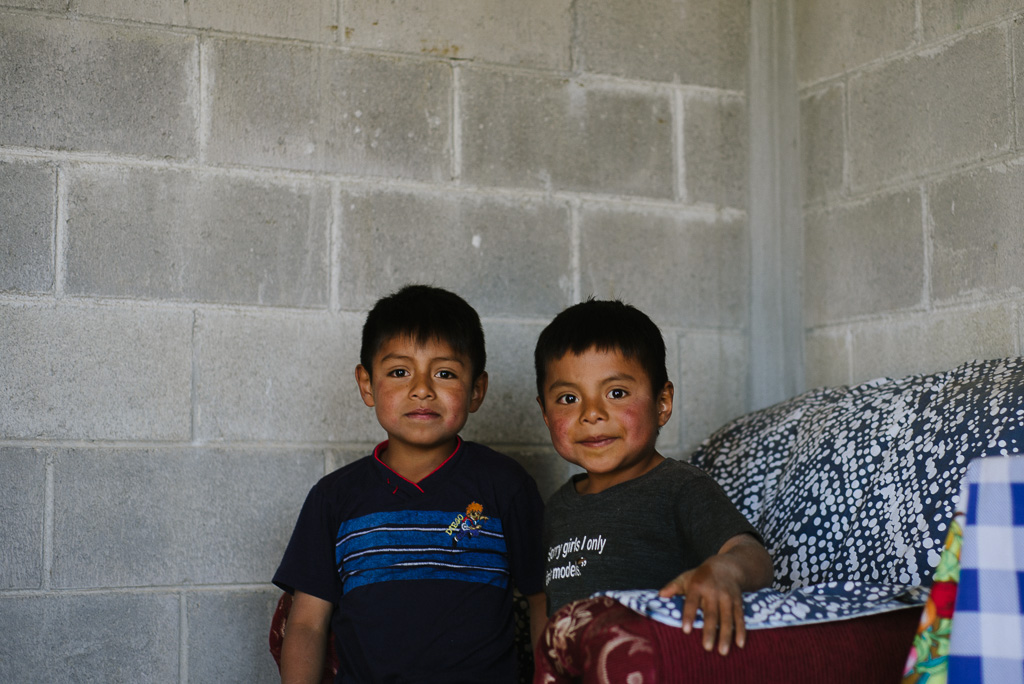
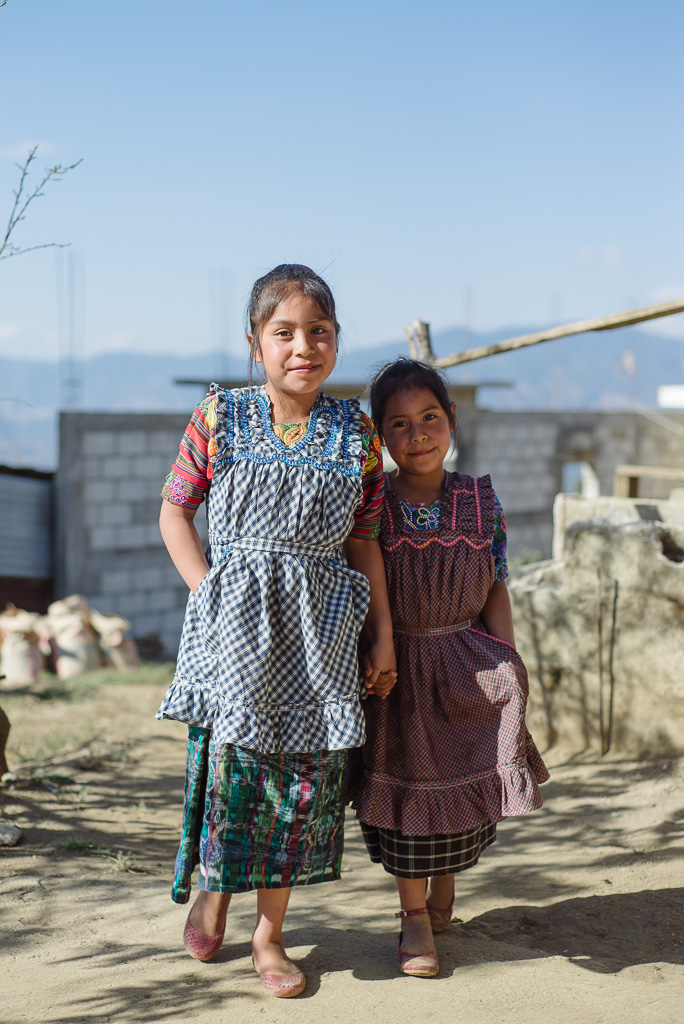




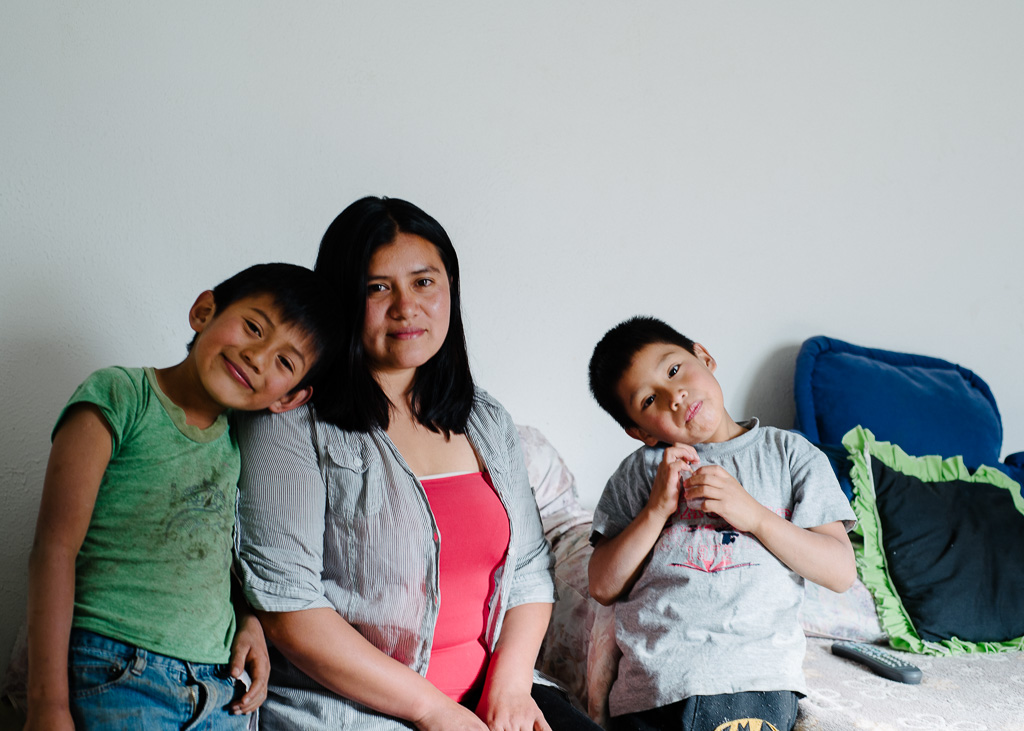

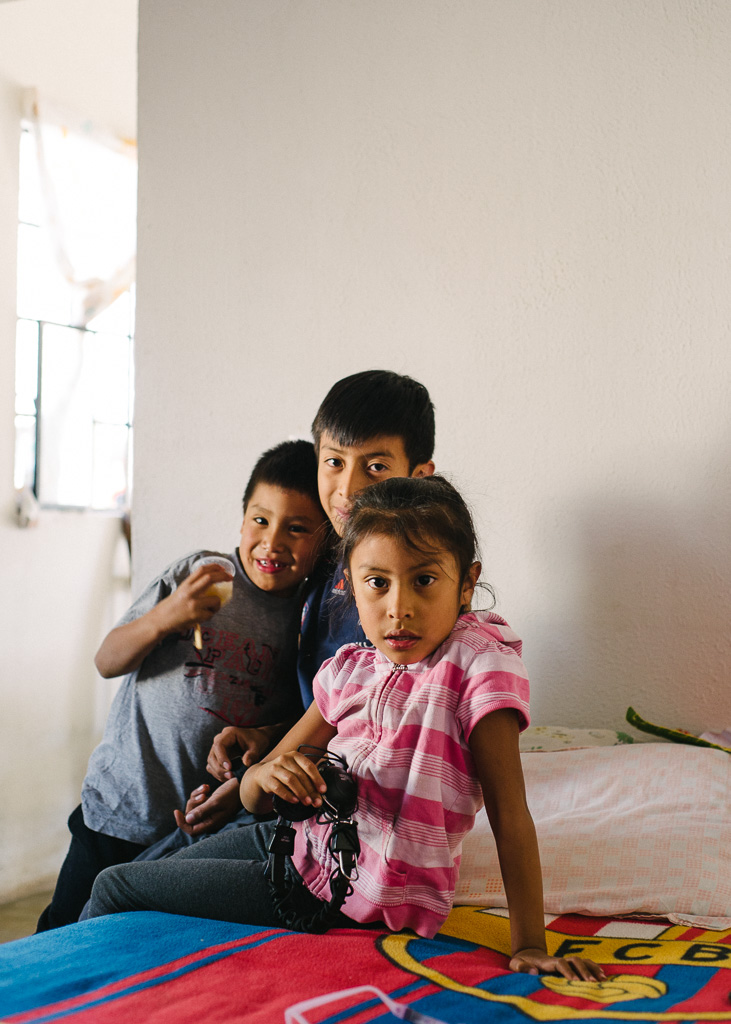
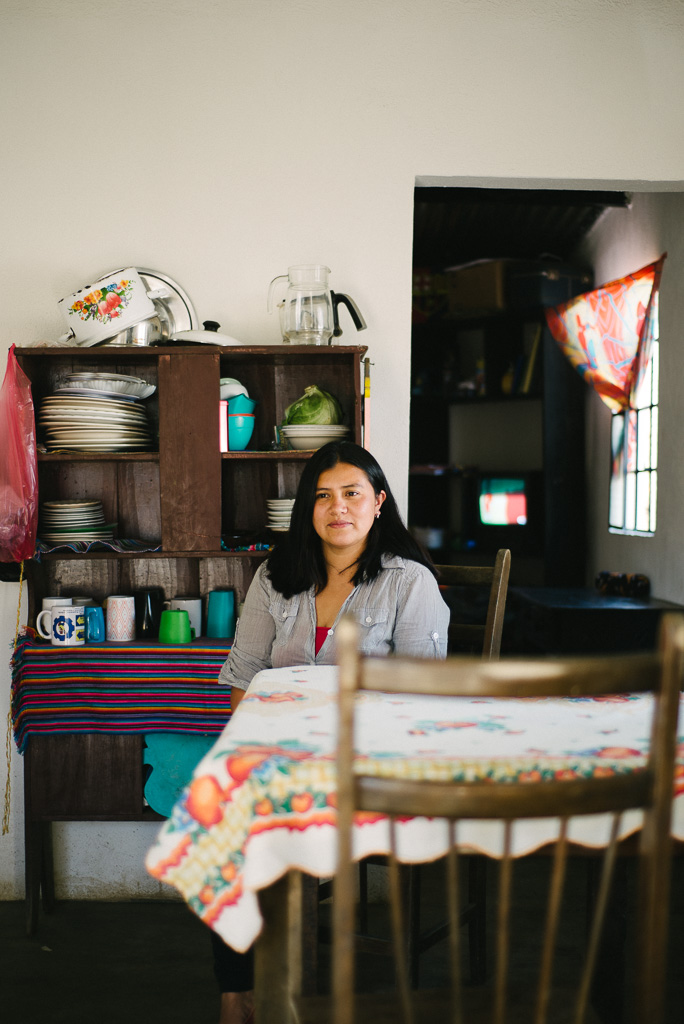
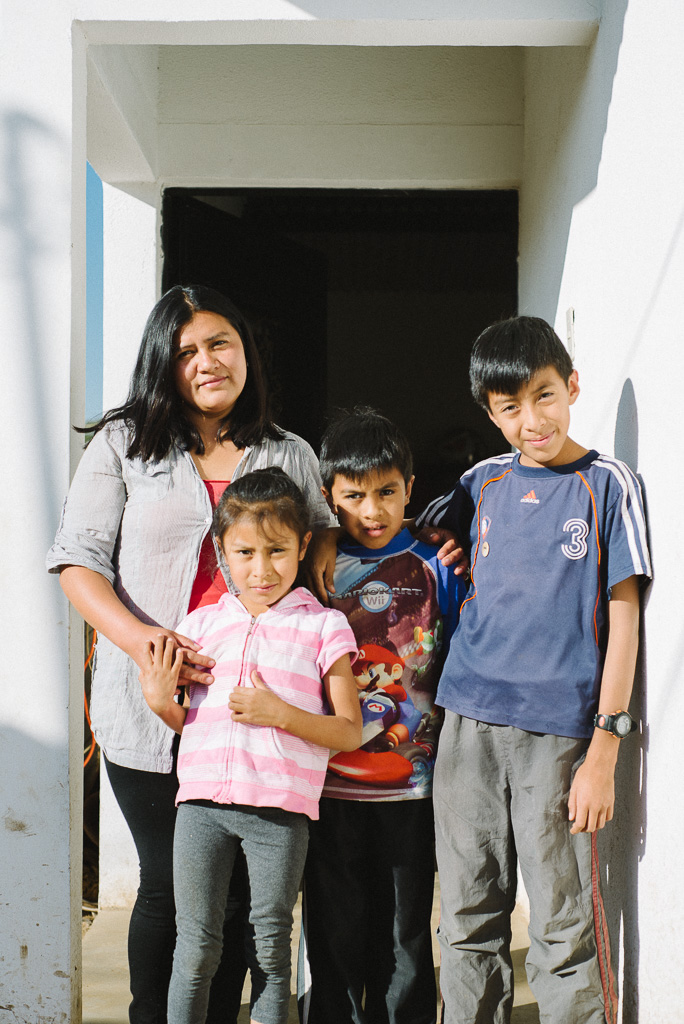
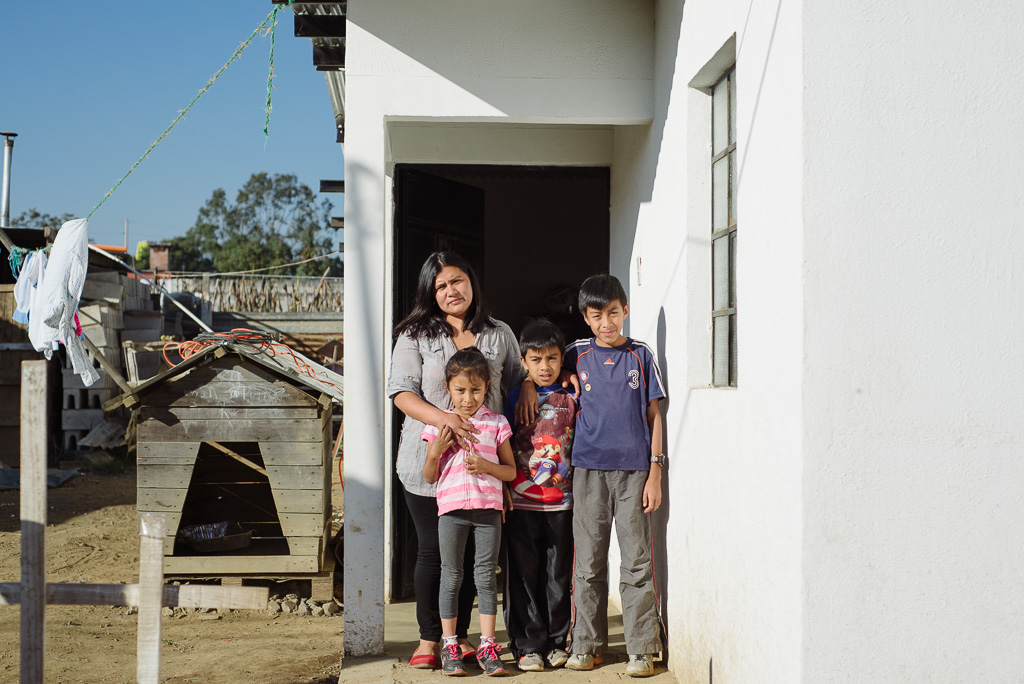















 Francisco explains Ingrid’s story: “After her husband passed away, Ingrid found work in the capital to provide for her family. She wanted to build a home for her daughters so that they would have a home in the future. I gave her the land to build the house on. The girls are little so they stay in our home while their mother works, and when she visits every fifteen days the girls stay with her in their home.”
Francisco explains Ingrid’s story: “After her husband passed away, Ingrid found work in the capital to provide for her family. She wanted to build a home for her daughters so that they would have a home in the future. I gave her the land to build the house on. The girls are little so they stay in our home while their mother works, and when she visits every fifteen days the girls stay with her in their home.”
 The sister’s houses are a only short walk apart. Standing outside Elma’s house, Francisco and Teresa explains her situation: “The never comes to see them anymore,” he says. “And neither do their grandparents.” Teresa chimes in: “There is nothing we can do about that: it is the way it is,» she says. Francisco continues: “So Elma found work with her sister and also comes home every fifteen days to see Luis and Mynor.”
The sister’s houses are a only short walk apart. Standing outside Elma’s house, Francisco and Teresa explains her situation: “The never comes to see them anymore,” he says. “And neither do their grandparents.” Teresa chimes in: “There is nothing we can do about that: it is the way it is,» she says. Francisco continues: “So Elma found work with her sister and also comes home every fifteen days to see Luis and Mynor.”
 The love and care that Francisco and Teresa have for their grandchildren is evident. As they talk, they occasionally pause to talk to their children in Kaqchikel–while Lesli and Lidia are in school and have started to learn Spanish, the younger children do not speak Spanish yet. This is common in Chimaltenango; while more and more indigenous people are learning Spanish, the older generation values their culture and strives to pass their mother tongue down the younger generations.
The love and care that Francisco and Teresa have for their grandchildren is evident. As they talk, they occasionally pause to talk to their children in Kaqchikel–while Lesli and Lidia are in school and have started to learn Spanish, the younger children do not speak Spanish yet. This is common in Chimaltenango; while more and more indigenous people are learning Spanish, the older generation values their culture and strives to pass their mother tongue down the younger generations.






